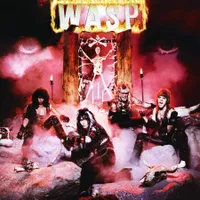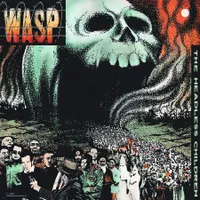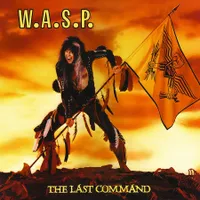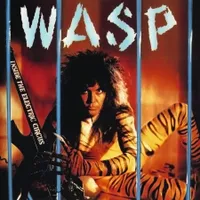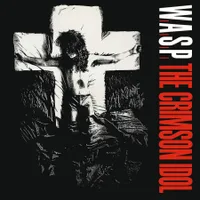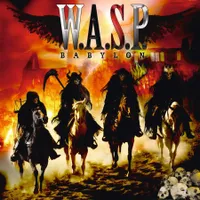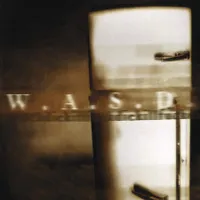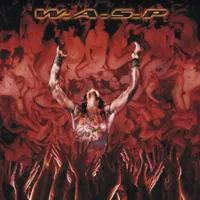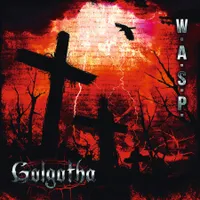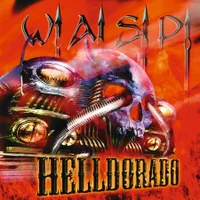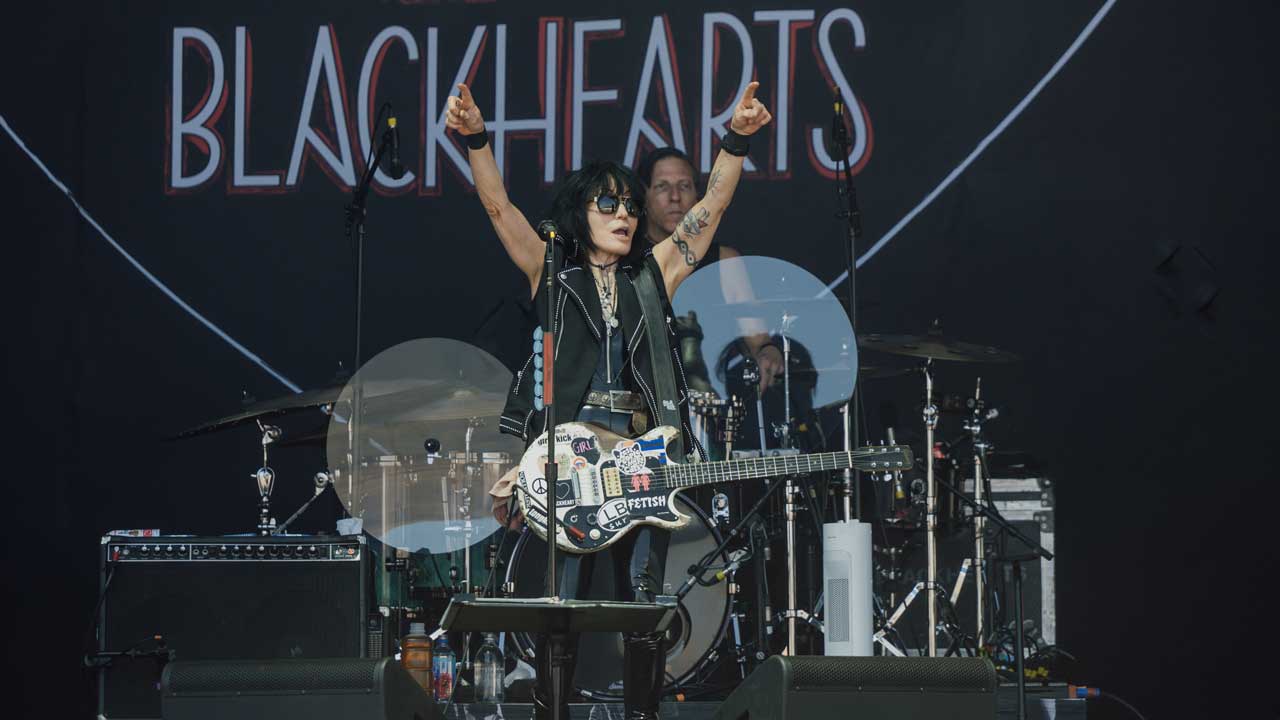"Some killer songwriting behind the blood and raw meat": Nine albums by W.A.S.P you should hear and one to avoid
W.A.S.P's infamy as leading shock metallers of the 1980s belies a back catalogue full of serious classic rock-influenced songwriting
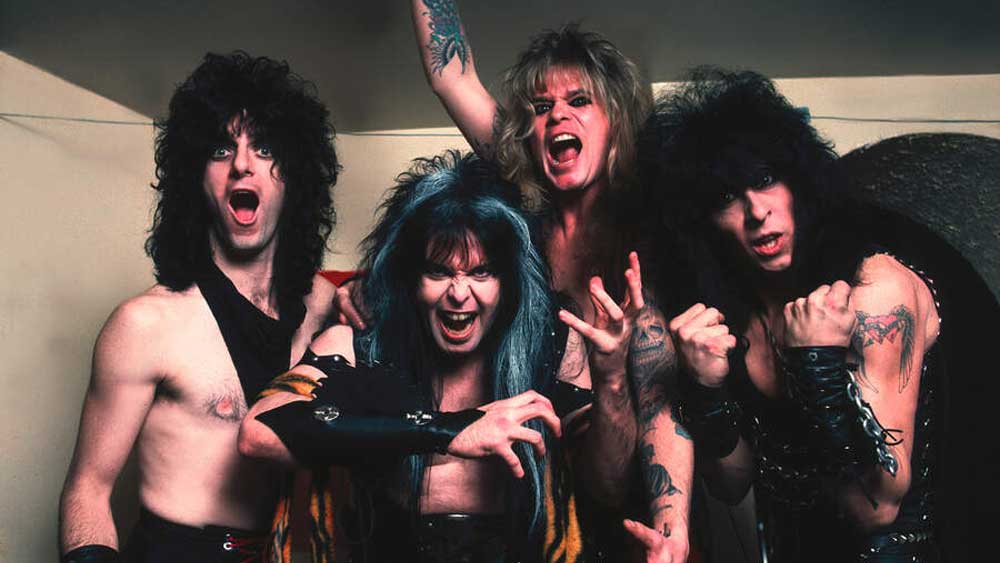
Even by the standards of the gonzo cartoon frat party that was 80s metal, W.A.S.P were the most gonzoid and cartoony of all. They were the shock rock stormtroopers of the Sunset Strip scene, detonating controversy bombs at every step. Their shows featured semi-naked women tied to onstage racks and frontman Blackie Lawless – a nine-foot giant with streaks in his hair and a sawblade codpiece – drinking blood from a skull and lobbing raw meat at the audience. Their debut single, 1984’s immortal Animal (Fuck Like A Beast), was machine-tooled for maximum provocation, something realised when even their own label refused to release it.
Yet Lawless was no whacked-out LA bozo. A childhood baseball hotshot who swapped the big stick for a guitar, he grew up in New York and spent a brief stint playing guitar in a late-period line-up of the New York Dolls. At the end of the 70s, he headed to LA, where he conspired to create a band who would reinvent Kiss and Alice Cooper’s shock rock schtick for the video nasty 80s.
With Chewbacca-like guitarist Chris Holmes at Lawless’ side, W.A.S.P’s impact was instant and brilliant. Their first three albums were an extended middle finger to straight America, sending the Washington Wives of the PMRC into fits of pearl-clutching apoplexy. It helped that their detractors insisted that the initials in their name stood for ‘We Are Sexual Perverts’ – they didn’t, though Lawless wasn’t about to deny it. But there was some killer songwriting behind the blood and raw meat. Few contemporaries could match the melodic brilliance of Lawless.
By the decade’s end, Lawless was tiring of easy controversy and made the pivot into the real world with 1989’s politically and socially aware The Headless Children. That was followed up by a full-fledged rock opera in 1992’s The Crimson Idol, a record that channelled The Who and Pink Floyd at their most conceptual.
Since then, W.A.S.P have plotted a more wayward course with Lawless the sole constant member, releasing some great albums and a few not-so-great ones. The 2000s saw the singer vigorously re-embracing the Christianity he’d grown up with as a child, and his faith is seared into the lyrics of the band’s most recent albums. It was an unexpected twist from this onetime heavy metal enfant terrible, but if nothing else, it proves that Blackie Lawless and W.A.S.P still have the power to shock.

The single Animal (Fuck Like A Beast) was intended to be the opening track, but was originally left off their debut album by a terrified record label. No matter – W.A.S.P is a killer record even without it. Powered by Lawless’ saw-blade howl, L.O.V.E. Machine and The Torture Never Stops are tougher and more tuneful than anything else spilling out of Sunset Strip at the time.
The unsettling Sleeping (In The Fire) is the template for every W.A.S.P ballad that followed, and I Wanna Be Somebody is a masterclass in self-actualisation sung by a man wearing a jagged circular saw codpiece and holding 10lbs of bloody liver. Shock rock with brains to match the guts.
The Headless Children (Capitol, 1989)
By the end of the 80s, Blackie Lawless was getting restless with W.A.S.P’s perceived limitations. Boneheaded single Mean Man aside, The Headless Children is unlike anything they’d put out before: a politically astute, socially conscious album that gets stuck into everything from gang violence (The Heretic (The Lost Child)) and addiction (Thunderhead) to the existential hole at the heart of humanity (the title track).
A faithful cover of The Who’s The Real Me is Blackie Lawless saying ‘Look at me, I’m a grown up’. He wasn’t wrong – The Headless Children is one of W.A.S.P’s greatest and an 80s metal classic.
The Last Command (Capitol, 1985)
W.A.S.P didn’t completely ditch the shock tactics on their second album, but they do dial it back – relatively. Ballcrusher and the barhopping, redneck-baiting Blind In Texas crank up the gonzo eighties metal attitude, but Wild Child, the title track and the unexpectedly haunting Cries In The Night put Blackie Lawless’ accomplished songwriting front and centre.
Best of all is the brooding Widowmaker, which finds the frontman bringing all the glowering menace he can muster to a song that indicated where the band would end up just a few years down the line. W.A.S.P might just have been growing up.
Inside The Electric Circus (Capitol, 1987)
The third in the unholy trilogy which made W.A.S.P infamous. Lawless plays the malevolent ringmaster on the title track, beckoning in the willing and the unsuspecting alike, and 9.5.-N.A.S.T.Y. is as schlocky and camp as a Friday The 13th sequel. Elsewhere, Blackie unfurls his classic rock flag via covers of 1966 R&B standard I Don’t Need No Doctor and Uriah Heep’s Easy Livin’.
A weedy production does it no favours, and it’s not packed with wall-to-wall classics like its predecessors, but it’s still a key part of the W.A.S.P legend – even if it’s not exactly a personal favourite of Lawless himself.
The Crimson Idol (Capitol, 1992)
W.A.S.P do both Quadrophenia and The Wall! Originally planned as a solo album by Blackie Lawless after the band fell apart following their fourth album The Headless Children, this follow-up is a full-blown rock opera centred on the rise and demise of orphan-turned-doomed rock star Jonathan Steele.
Squint a bit and Arena Of Pleasure, the swiveleyed Chainsaw Charlie (Murders in the New Morgue), plus the epic The Idol could be the work of a heavy metal Pete Townshend, but The Crimson Idol, while undoubtedly a great rock opera album, is never really quite ambitious or mad enough to match up to its inspirations.
Born-again Blackie Lawless ramps up the fire-and-brimstone on W.A.S.P’s 14th album. The man who once bragged of fucking like a beast comes on like an apocalyptic fire and brimstone preacher here, warning the unbelievers that Judgement Day is coming and laying the fiery metaphors on thick: Babylon’s Burning, Seas Of Fire, Into The Fire, even a cover of Deep Purple’s Burn.
Despite the Christian hysteria, in every other respect, this is vintage W.A.S.P. Especially the monstrously anthemic Live To Die Another Day and Godless Run, the latter playing out like Blackie’s apology to the big guy upstairs for his past sins.
Kill Fuck Die (Raw Power/Castle, 1997)
The black sheep of the W.A.S.P back catalogue. Having kept grunge at arm’s length, Lawless couldn’t resist hopping on the mid-nineties industrial metal bandwagon.
Partly inspired by Coppola’s 1979 war film Apocalypse Now and featuring a returning Chris Holmes, Kill Fuck Die’s sound was fed through a mechanised production line, piling on the angry distortion and pistoning drums on the Head Like A Hole-pilfering title track (‘No you can’t take this away from me!’) and Fetus. But the innate sense of melody from Blackie Lawless’s songwriting skill cuts through the steam and sparks on My Tortured Eyes and Killahead. Calculated, sure, but perversely impressive.
The Neon God Pt 1 – The Rise / The Neon God Pt 2 – The Demise (Noise/Sanctuary, 2004)
If The Crimson Idol felt constrained by its running time, the similarly conceptual two-part rock opera The Neon God would have benefited from some judicious pruning. Centred around an orphaned kid with psychic powers and released in two hefty instalments five months apart, this behemoth doesn’t have the musical weight to back up its ambition.
It’s fairly indigestible taken as a whole, but there are some great moments – The Red Room Of The Rising Sun is the closest W.A.S.P ever came to psychedelia, right down to the lift from Tomorrow Never Knows.
Where 2009’s Babylon viewed the world as a Sodom And Gomorrah begging to be laid to waste, this follow-up-come-spiritual sequel is less proselytising and more questioning – the anguished title track is a literal cry to heaven. But it’s also stacked with massive tunes: Last Runaway sees Lawless channelling the us-against-the-world rush of classic Bruce Springsteen, while Miss You stands as the most heartfelt ballad that he’s ever written.
At 54 minutes, the latest W.A.S.P album Golgotha is 10 minutes too long, but very few other survivors of the devil’s own decade (the 80s, that is) make records that are this good so late in their career.
...and one to avoid
You can trust Louder
Helldorado (CMC International, 1999)
Having spent the 1990s staggering from style to style with all the dignity of a middle-aged drunk desperately trying to find an after-hours strip club that will let grant him entry, Helldorado saw W.A.S.P finally faceplant on the pavement, flabby buttocks hanging out of their arseless chaps.
Dirty Balls and the dismal Don’t Cry (Just Suck) are phoned-in attempts to recapture the controversy of the band’s mid-80s heyday, but rather than provocative, they’re just grim, lazy and stupid. Which is something that W.A.S.P – for all of their multiple sins – had never really been before. The Headless Children never seemed so far away.
Sign up below to get the latest from Classic Rock, plus exclusive special offers, direct to your inbox!
Dave Everley has been writing about and occasionally humming along to music since the early 90s. During that time, he has been Deputy Editor on Kerrang! and Classic Rock, Associate Editor on Q magazine and staff writer/tea boy on Raw, not necessarily in that order. He has written for Metal Hammer, Louder, Prog, the Observer, Select, Mojo, the Evening Standard and the totally legendary Ultrakill. He is still waiting for Billy Gibbons to send him a bottle of hot sauce he was promised several years ago.
